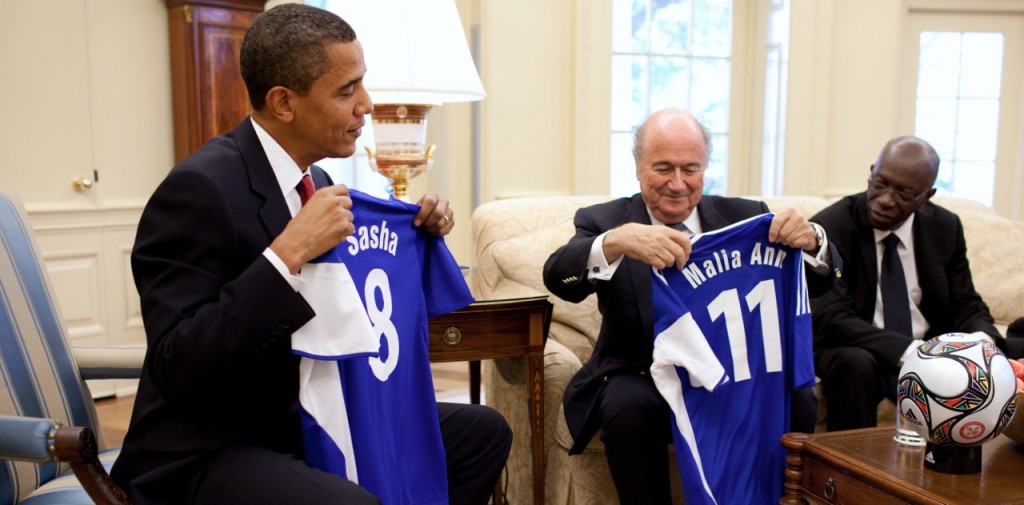
EspañolRumors of corruption in the world of international sports are everywhere. Shady advertising deals, fixed matches, and other misconduct amount to open secrets in the sports world. Sochi’s Winter Olympics were well understood to be more a front for graft than a sports competition.
Yet, somehow, last week’s arrest of top FIFA officials stands out above the rest, and, if true, would be one of the most egregious events in the history of corruption in sports.
The arrests stem from, among other allegations, bribery over the choice of the 2018 and 2022 World Cup sites. Awarded to Russia and Qatar, respectively, both choices had been widely panned. FIFA even admitted that they would be forced to move the 2022 World Cup’s start date because outdoor games in the desert summer are simply not viable.
There is something particularly troubling about how governments interfere with sports. Such games exist for customers who watch them; they are apolitical. The winner of a particular tournament does not matter to non-fans in any tangible way. It doesn’t matter if this is a game of baseball in a local park or the World Series; a game is a game.
Yet, government officials worldwide see sports as tools. They take apolitical activities like sports and use them as chess pieces in the world of geopolitics. The locations of major international events like the World Cup and the Olympics are quintessential examples. Countries don’t spend billions of dollars bidding for and hosting these events because they want to see more of the games played.
Politicians promise voters many benefits from mega-events, yet few ever materialize in the long run. They unequivocally are not net positives for the economy, as boosters say. They often lead to costly investments in unnecessary infrastructure that sees minimal use after the crowds leave. Cities are left with piles of debt, and white-elephant facilities that go unused. While there have been exceptions to this, the normal result trends negative, not positive.
Today, hosting a major event like the World Cup is more a status symbol than anything else. It is a sign of extravagance and power, with all the world’s television cameras pointed at one place at the same time. It is a means to justify vast amounts of spending on shiny new projects. A host nation seeks to show that they have “arrived” at the status of a nation of note. They seek to dispel foreign stereotypes. They seek to show that they matter.
How do we know this? Look at the precedent from recent World Cup and Olympic history: Brazil, which hosted the World cup just last year, and will host the Olympics next year. They promised Rio de Janeiro, one of the world’s largest cities, would be renewed, with its harbor clean, and new infrastructure built.
None of this will be done in time. The Olympic sailing venue will need to be moved because the water is too polluted to sail on. The World Cup stadium built in Brasilia, the capital, is now used as a bus parking lot. The Brazilian government over promised both the benefits of hosting and that they could make the necessary improvements to be a host at all, and they have failed.
The story is the same for the Sochi Olympics, the most expensive in history. Something has clearly gone wrong when there is not enough snow for a snow-sports competition. This says nothing about the initial choice to put the 2022 World Cup outside in the Qatari desert.
Would any sporting body not under the influence of government make mistakes like this in choosing the location for its events? Certainly not, and that might be the most damning evidence that governments have harnessed sports for their own gain. Sports are no longer innocent, apolitical games, but blunt tools to achieve political gains.
Is this shocking? No. But this also means that sports are not innocent of the harms done in their name.
Billions in public dollars have been spent on stadiums worldwide. Many thousands of people have seen their homes and businesses bulldozed for venues and parking lots. All for a bit of political showmanship. The government and sports leagues collaboration has had a very human cost. If we can take anything from the recent FIFA scandal, it is that sports are not innocent, and they are certainly not apolitical.
 Versión Español
Versión Español












